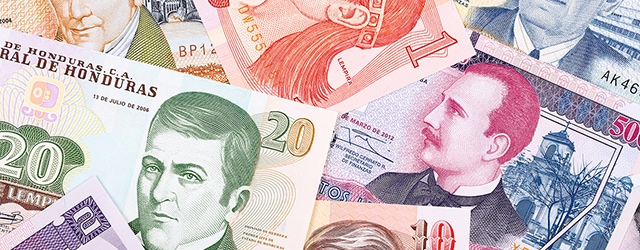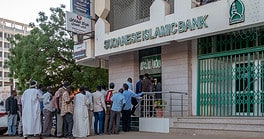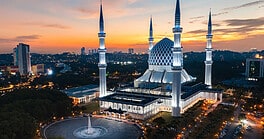Poverty and migration are stubborn problems in Honduras but Hernandez's government is determined to combat both.

Honduras is working on a new economic growth strategy to curb migration and poverty after the failure of its Honduras 2020 development plan to do either.
“Nothing was achieved,” conceded Peter Fleming, president of the old plan’s leadership committee, adding that the government is in the process of naming a new management team with President Juan Orlando Hernandez set to appoint it in coming weeks.
The five-year Honduras 2020 plan aimed to create 600,000 jobs and boost exports to $14 billion in the hopes that this would help the impoverished nation halve child migration and reduce poverty.
The plan’s new management team will consist of industry chiefs as opposed to top businessmen with individualistic goals, Fleming revealed. “Now we will have the presidents of several industry associations such as the maquila and banking industries as well as agricultural cooperatives who will have their broader members’ interests in mind such as those operating coffee or palm oil plantations,” he said.
The hope is that by having cooperatives representing impoverished farmers or campesinos inside the new structure, financial inclusion will gain traction in a country where a large percentage of people are unbanked.
“We want to guarantee that all economic sectors have a voice and can present their own growth strategies to dynamize the economy,” Fleming mused. “We don’t just want bankers looking to lend to bankable people only or just to the textiles sector.”
While the administration works to hammer out the new charter, there is consensus about its three overarching goals: Boosting investment, promoting exports and improving the country’s image, Fleming said. That contrasts with the former strategy that sought to develop six key economic sectors: maquila manufacturing, intermediate manufacturing, agriculture, IT business services, tourism and energy/real-estate.
“These six sectors defined our three new themes of investment, exports and image in the older plan,” Fleming explained. “We want to do the opposite now. We want to provide opportunities for other sectors to attract investments.”
To boost exports, which range from $8 billion to $10 billion annually, Hernandez’s embattled government is also considering lifting so-called solidarity micro credits for small and midsize businesses to help them access new export markets.
Already, the state distributed $65 million of such aid in 2019 and is poised to provide significantly more in 2020, according to Fleming. The government will also work to create new markets for farmers and educate consumers to save remittances (which account for 20% of GDP) to start future businesses as part of a new entrepreneurship push.
Meanwhile, improving Honduras’ tarnished international image is crucial to generate new foreign investment after a disputed election in 2017 fueled calls for Hernandez’s resignation (with a stinging U.S. cocaine trafficking conviction against his brother making a bad situation worse).
“We have to work on an image to become an investment hub by changing Honduras’ negative perception,” said Fleming, echoing analysts and economists’ views that the country could witness further political turmoil in the run-up to the 2021 elections.
One such effort was the recent passage of a decree to extend Honduras’ free-trade zones tax breaks to 25 years from 15. The move will create 15,000 jobs and draw $500 million in new investments this year, Fleming claimed.
Observers said the job targets are overhyped and slammed the government for using Honduras 2020 as political propaganda.
“The [old] 2020 plan is wet paper,” said Joel Almendares, director of labor trades union CUTH. “It was a strategy to entertain people by saying it would create 600,000 jobs but it has not done that at all. We have less employment every day.”
Foreign multinationals are also nervous about Honduras’ growing violence and volatility with Unilever and Guatemala-based Intrefica closing soap recently, axing 2,000 workers.



